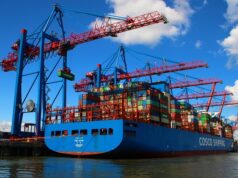 Series 1, click here.
Series 1, click here.
Series 2, click here.
Series 3, click here.
Series 4, click here.
Series 5, click here.
Series 6, click here
Series 7, click here
Series 8, click here.
Title XI of the Customs Modernization and Tariff Act has 53 sections under 10 chapters. While this title has the most number of sections, Title VIII has the most number of actual provisions given that three laws (trade remedies) were incorporated under that title.
Chapter 1 (Advance Ruling and Dispute Settlement) is a new chapter but has old and new provisions. Among the new provisions are as follows:
- The law now provides for a mechanism for BOC to issue advance rulings with regard to valuation, rules of origin and other customs issues (classification issues are excluded);
- Application for advance ruling shall be submitted to the Commissioner and appeals from adverse rulings shall be filed with the Court of Tax Appeals (CTA); and
- Application for classification ruling shall be filed with the Tariff Commission and classification rulings shall be binding upon BOC; and in case of classification disputes, the BOC shall refer the matter to the Tariff Commission.
(Note that under the old rules, it is not expressly provided that tariff rulings shall be binding upon BOC. In addition, there is no clear jurisdictional rules in regards to actual classification disputes.)
Chapter 2 (Protest) is principally based on the old rules, the major revision being with regard to the venue of the protest which is the Office of the Commissioner, and in case of adverse decisions, with the CTA. The rationale for this is that when an issue is raised on a pending shipment at the level of the Collection District, such dispute shall be treated as a case on “first instance” and when the importer disagrees with the position of the Collection District, the remedy would be to file a protest with the Commissioner.
With regard to the requirement for the amount to be paid or the posting of guaranty, the law has provided that the implementing rules shall be provided as to the following:
- When payment has to be made or not with regard to the disputed amount of duties and taxes;
- in case the disputed amount is not paid, whether to require a guaranty or not; and
- in case a guaranty is required, whether the same shall be in cash, check, letter of credit, surety bond or any other kind of guaranty.
Chapter 3 (Alert Orders) is a new chapter. It specifically provides the rules with regard to the:
- basis for the issuance of alert orders which may result in suspension of the processing of the shipment and the conduct of physical or non-intrusive inspections; and
- validity of the orders and the period required to make a finding after the conduct of the examination.
Chapter 4 (Seizure and Forfeiture) is mainly based on the old provisions with the following significant changes:
- Period required to issue an order of release or a warrant of seizure upon recommendation of the alerting officer;
- Provision allowing the District Collector to order the release of the alerted goods in case of an absence of probable cause, subject to review by the Commissioner;
- Redemption, even when there is evidence of fraud, shall be available even during the course of the forfeiture proceedings, without prejudice to the filing of the administrative and criminal cases as applicable; and
- Period required for the issuance of an order for hearing and for the issuance of the decision after termination of the hearing.
Chapter 5 (Appeal in Protest and Forfeiture Cases) is mainly based on old provisions.
Chapter 6 (Abandonment) substantially departs from the old provisions. Under the new rules, abandoned goods are NOT government property and the importer has:
- the right to reclaim the goods after payment of the duty and tax, and all other charges and expenses; and
- the right over the proceeds of the sale, after deduction of any duty and tax, and all other charges and expenses.
Importers should understand that even if there is failure to file the import entry within the prescribed period, the goods do not become government property and importers may (a) request for extension of the period to file the entry, (b) reclaim the goods, or (c) collect the proceeds if the goods have already been sold. (We have extensively discussed ‘abandonment’ in the first article of this series last November 14, 2016.)
Chapter 7 (Other Administrative Proceedings) repeats the old provision allowing the Commissioner to enter into a compromise but limited to the imposition of fines and surcharges. During the deliberations on the CMTA in the Lower House, there was a proposal to include the principal amount in the authority to enter into a compromise but the same was disapproved.
Chapter 8 (Civil Remedies for the Collection of Duties and Taxes) provides additional powers to the BOC to enable it to fully exercise its audit powers. These additional powers include the power to issue summons to produce records and to give testimony, and to exercise summary remedies such as distraint of personal property and levy of real property to implement its audit findings. This chapter is principally based on similar provisions in the National Internal Revenue Code (NIRC).
Chapter 9 (Judicial Proceedings) is an iteration of the old provisions. A significant amendment is that with regard to the prosecution and handling of criminal cases, the same shall be handled by customs lawyers, with the assistance of the Department of Justice.
Chapter 10 (Disposition of Property in Customs Custody) restates many of the old provision with the following major changes:
- BOC may immediately opt to donate forfeited goods to another government agency or to declare the same for official use of the bureau;
- Prohibited goods shall be destroyed, except those suitable for shelter, foodstuff, clothing materials and medicines; and
- Regulated goods shall be disposed of in the manner to be determined by the regulating agency and not the BOC.
Section 1151 of this chapter provides for the creation of a Forfeiture Fund. All proceeds from public auction sales, after deduction of the charges and expenses and subject to the claim of the owner or importer in the case of impliedly abandoned goods, shall be deposited in the Forfeiture Fund. The fund shall be used specifically for the following purposes:
- outsource the management of the inventory, safekeeping, maintenance and sale of abandoned and forfeited goods;
- facilitate customs seizure, abandonment and forfeiture proceedings and the disposition of goods;
- enhance customs intelligence and enforcement capability; and
- support the modernization program, and other operational efficiency and trade facilitation initiatives.
The author is an international trade, indirect tax (customs) and supply chain expert. He is the Editorial Board Chairman of Asia Customs and Trade, an online portal on customs and trade developments affecting global trade and customs compliance in Asia. ACT provides trade intelligence through industry updates and features; columns written by customs and trade professionals and experts; and specially commissioned reports.For questions, please email him at agatonuvero@yahoo.com or agatonuvero@customstrade.asia (www.customstrade.asia).












